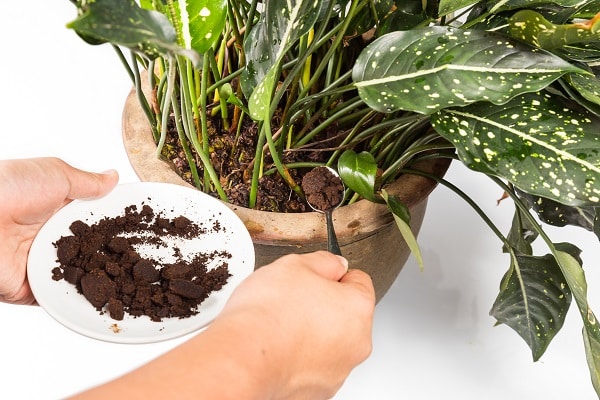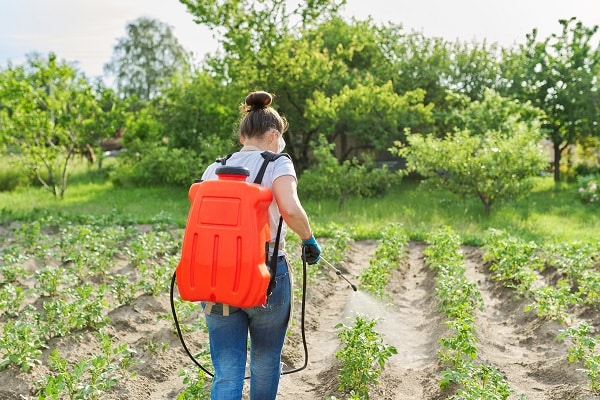Do you have a garden? If so, you may be battling aphids this season. Aphids are small, green insects that can cause severe damage to plants. They can suck the sap out of plants, stunt their growth, or kill them outright. This blog post will discuss how to protect your plants from aphids using natural methods to help you avoid this from happening in your garden. It will also provide some tips on getting rid of aphids if they manage to take hold in your garden.
Contents
Apply Neem Oil
Aphids are challenging to control because they reproduce quickly and are often resistant to pesticides. However, one effective control method is to apply neem oil to your plants. Neem oil is a natural insecticide derived from the seeds of the neem tree. When applied to plants, it works by disrupting the life cycle of aphids, preventing them from reproducing.
Although it takes some effort to apply neem oil properly, it can be an effective way to protect your garden from aphids. In addition, neem oil has a bitter taste that aphids do not like, so it acts as a deterrent. To apply neem oil:
- According to the manufacturer’s instructions, mix it with water and then spray it on your plants.
- Cover the undersides of the leaves, as this is where aphids often hide.
- Repeat this process every few days.
Introduce Beneficial Insects
Many gardeners are familiar with using beneficial insects to control pests. However, many don’t know that this same principle can apply to aphids. While a few aphids may not cause severe damage to a plant, a large infestation can weaken the plant and make it more susceptible to disease. Fortunately, many beneficial insects will help to keep aphid populations in check.
You can effectively protect your plants from aphids without resorting to harmful chemical pesticides by releasing these beneficial insects into your garden. Ladybugs, for example, are voracious predators of aphids. Green lacewings and parasitic wasps are also effective at controlling aphid populations.
Use Diatomaceous Earth
Diatomaceous earth, or DE, is a naturally occurring mineral that you can use to protect your plants from aphid invasions. This powdery substance has tiny particles that work to cut through the outer layer of an aphid’s shell, causing it to dry out and eventually die. To use DE to keep aphids at bay, sprinkle it around the base of your plants, making sure to get both the top and bottom surfaces.
For optimal results, repeat this process regularly, especially after heavy rain or heavy watering. With its proven ability to deter even the most stubborn aphids, diatomaceous earth is an excellent tool for any gardener looking to protect their plant life.
Apply Companion Plant Methods
For many gardeners, keeping aphids at bay can be one of the biggest challenges in maintaining healthy and vibrant plants. Aphids are tiny insects that feed on sap by piercing plant tissues with their mouthparts, which can cause severe damage if left unchecked. Fortunately, there are several companion planting methods that you can use to protect your plants from these pests and keep them flourishing. One effective approach is to plant mint or basil around vulnerable plants, as these strong-smelling herbs act as natural repellents for aphids.
Another strategy is to intersperse nasturtiums throughout your garden bed; the large leaves of this hearty plant offer protection by depriving aphids of the sunlight they need to survive. Finally, you can take preventative measures by installing floating row covers on the perimeter of your garden, which will create a physical barrier that keeps these insects out. With these simple but effective strategies for companion planting, you can keep your plants free from damaging herbivores like aphids and enjoy a flourishing garden year after year.
Use Liquid Dish Soap
Planting your garden with aphid-resistant plants is an easy and effective way to keep these destructive pests at bay. But even the most resistant varieties can be vulnerable to these tiny bugs if you don’t take proper care of your plants. One simple trick experienced gardeners often use to protect their flowers, veggies, and fruits are adding a small amount of liquid dish soap directly to the soil near their roots.
The soap creates an oily film on the surface of the leaves and stems that prevent the aphids from getting a firm grip. And because the dish soap doesn’t interfere with photosynthesis, this simple treatment won’t harm your plant’s health or vitality, making it an excellent choice for anyone looking for an all-natural way to protect their garden. So why not try using a little bit of liquid dish soap next time dealing with pesky aphids? You’ll be amazed by how well it works!
Spray Isopropyl Alcohol
Isopropyl alcohol is a common household product that you can use to protect your plants from aphids. While many commercial insecticides are available, Isopropyl alcohol is an effective and inexpensive option. To use, mix equal parts of water and Isopropyl alcohol in a spray bottle and apply to the affected areas of your plant. The alcohol will kill the aphids on contact, and the water will help to dilute the strength of the alcohol, so it doesn’t damage your plant.
You can also add a drop or two of dish soap to help the mixture adhere to the leaves. Repeat this treatment every few days as needed until the aphids are gone. You can also use this same method to eliminate other common household pests like mites, whiteflies, and mealybugs. So next time you’re dealing with a bug problem in your garden, reach for the Isopropyl alcohol! It just might be the solution you need.
Make Sure Your Plants Get Plenty Of Water
When protecting your plants from aphids, one of the most important things you can do is make sure your plants get plenty of water. Aphids are attracted to dry, stressed-out plants, and they feed off these plants by sucking out their sap. They can multiply very quickly in hot, dry conditions and cause severe damage to your plants. Luckily, regular watering can help to keep your plants healthy and free from aphid infestations.
Watering helps keep the soil moist and cool and encourages natural predators like ladybugs to stay around and feed on any aphids that may be present on your plants. So if you want to protect your precious garden from these pesky little pests, make sure you give your plants plenty of water!
Keep Those Pesky Aphids At Bay
Aphids can be a real pain for gardeners, but you can easily protect your plants from these destructive pests with these simple tips. Try applying some of these methods to keep aphids at bay and enjoy a healthy and thriving garden all season long! If you are still struggling to get rid of aphids, contact a local pest control company for help. They will be able to identify the problem and provide you with more specific advice on protecting your plants from these damaging insects. You can have a beautiful garden that’s free from aphids in no time at all!






